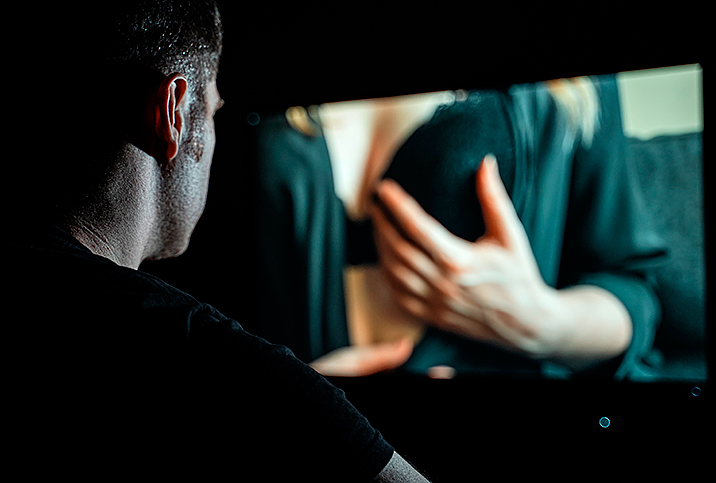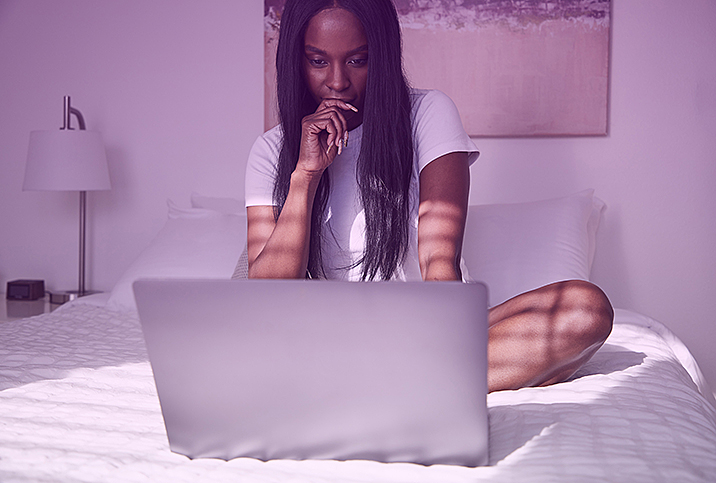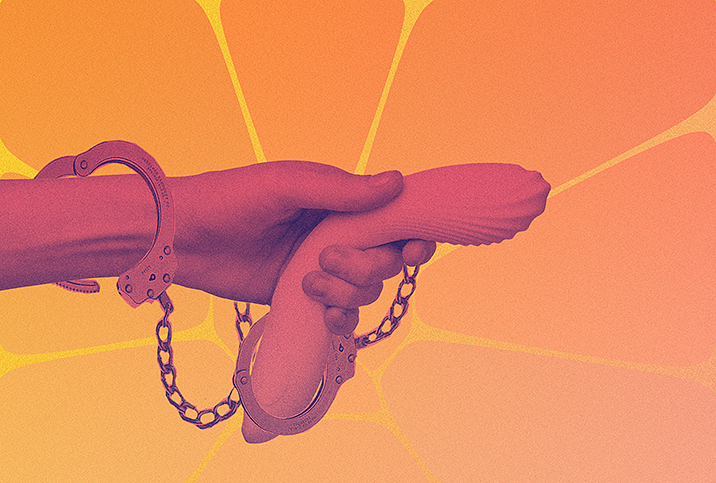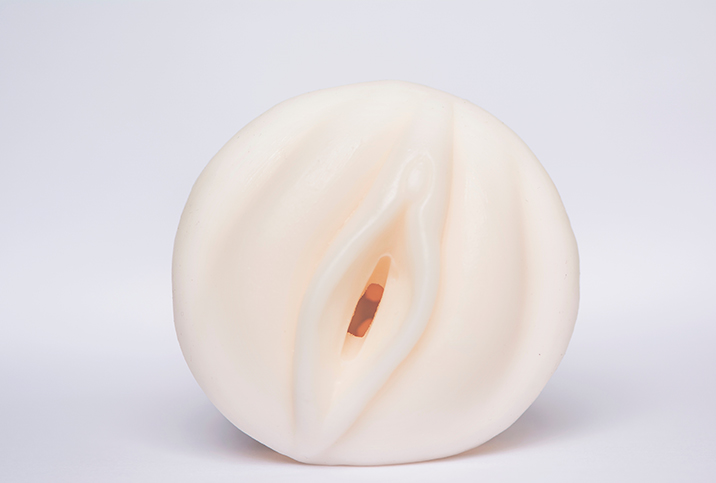How the Pandemic Changed Our Masturbation Routines

In a June 8, 2020 advisory titled "Safer Sex and COVID-19," the New York City Health Department informed the public, "You are your safest sex partner." Masturbation, the advisory stated, "will not spread COVID-19." A similar message came out of the Los Angeles County health department, and even the Mayo Clinic chimed in: "The safest type of sexual activity during the COVID-19 pandemic is masturbation."
But when and how during a pandemic lockdown is anyone supposed to find time for this "safest sex partner?" With more residents potentially staying at home, total privacy is hard to come by. It can prove especially tricky for women, for whom masturbation can be a longer and perhaps more-involved process than for men, experts say. While there may be plenty of time to masturbate during lockdown, there also may be insufficient opportunity, mood or both; planning and strategizing are vital to making it happen.
"A lot of female clients worry masturbation will be overheard by family and friends," sex therapist Sarah Berry said. "Playing music can mask many things, as can white-noise machines or phone apps. If your bedroom is less private, the toilet can be a great place to masturbate. Flushing the toilet or running the tap can mask moans and machines."
Something completely different
“Lots of people masturbate!” Planned Parenthood cheerfully points out on its website. This is more true since the onset of COVID-19. According to one study of 2,000 Americans, the average single person is now masturbating three times per day.
Masturbation’s appeal during the pandemic is partly due to its not compromising social distancing. Though COVID-19 is not known to be transmitted through sexual intercourse, it can be transmitted through kissing or simply being physically close to an infected person. According to the Los Angeles County health department, the virus spreads through particles in the saliva, mucus or respiratory droplets of people with COVID-19, even from people who do not have symptoms.
Safe sex, according to the International Society for the Study of Women’s Sexual Health (ISSWSH), "may mean something completely different during this pandemic," which could include virtual sex acts, done over Skype, FaceTime or Zoom.
According to a Journal of Gynecology, Obstetrics and Human Reproduction article, only 1 in 4 respondents said COVID-19 had positively affected his or her sex life, and about half said it had a negative effect. Depression and anxiety caused by the lockdown or financial stress brought on by the country’s economic swoon wrought "significant changes in sexual behavior," according to the article’s authors. Such emotions disrupt libido-promoting chemicals in the brain.
The quarantine self-pleasure plan
Masturbation has become a popular option for sexual gratification because it is low-risk, doable on most people’s terms and accessible—or relatively accessible. It’s not always easy to find the time or place to masturbate during a lockdown.
"Finding time to oneself can be challenging, particularly if one has a lot of responsibilities," Berry said. "When one does snatch time, masturbation may not be the first priority. Some people can knock out an orgasm with a lot of efficiency. Some need more time and space."
For a woman, the opportunity to masturbate might prove even more elusive, as reaching climax may prove a longer or more involved process. A 2018 study reported in the Journal of Sexual Medicine found that although women typically climax more quickly during masturbation than during partnered sex, a woman’s average time to orgasm is "substantially longer" than a man's. To work around this, Berry suggests women masturbate:
- When sleep won’t come. Orgasms release a hormone that can cause sleepiness.
- In the morning. Like penises, clitorises and vaginas are often primed for use at the beginning of the day, and heavy breathing and writhing get the blood flowing.
- When a sharp mind is needed. The increased blood flow to the brain and release of epinephrine and norepinephrine can make a person perkier.
- When troubled. Levels of the stress hormone cortisol decrease during sex.
- When in pain. Sex causes the part of the brain concerned with pain to release a stress-relieving hormone.


















